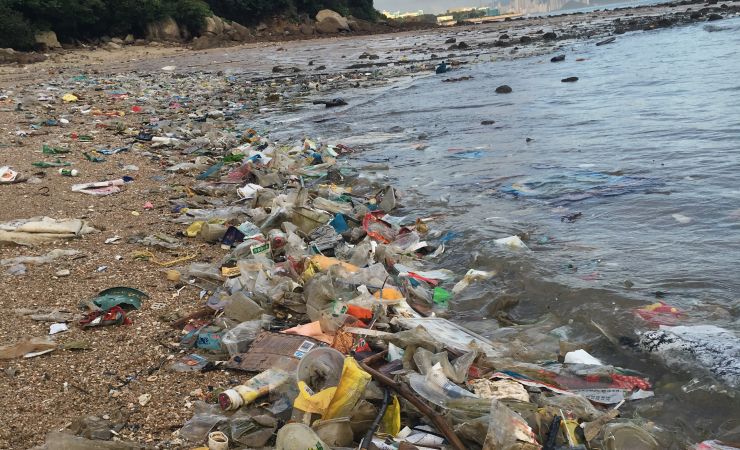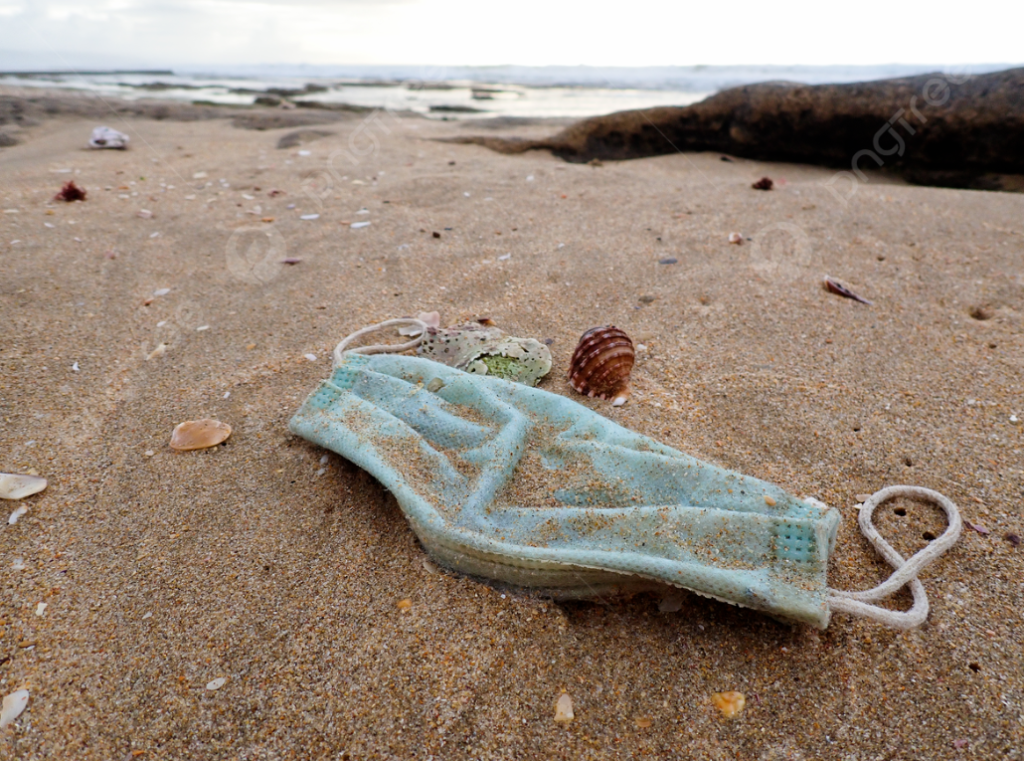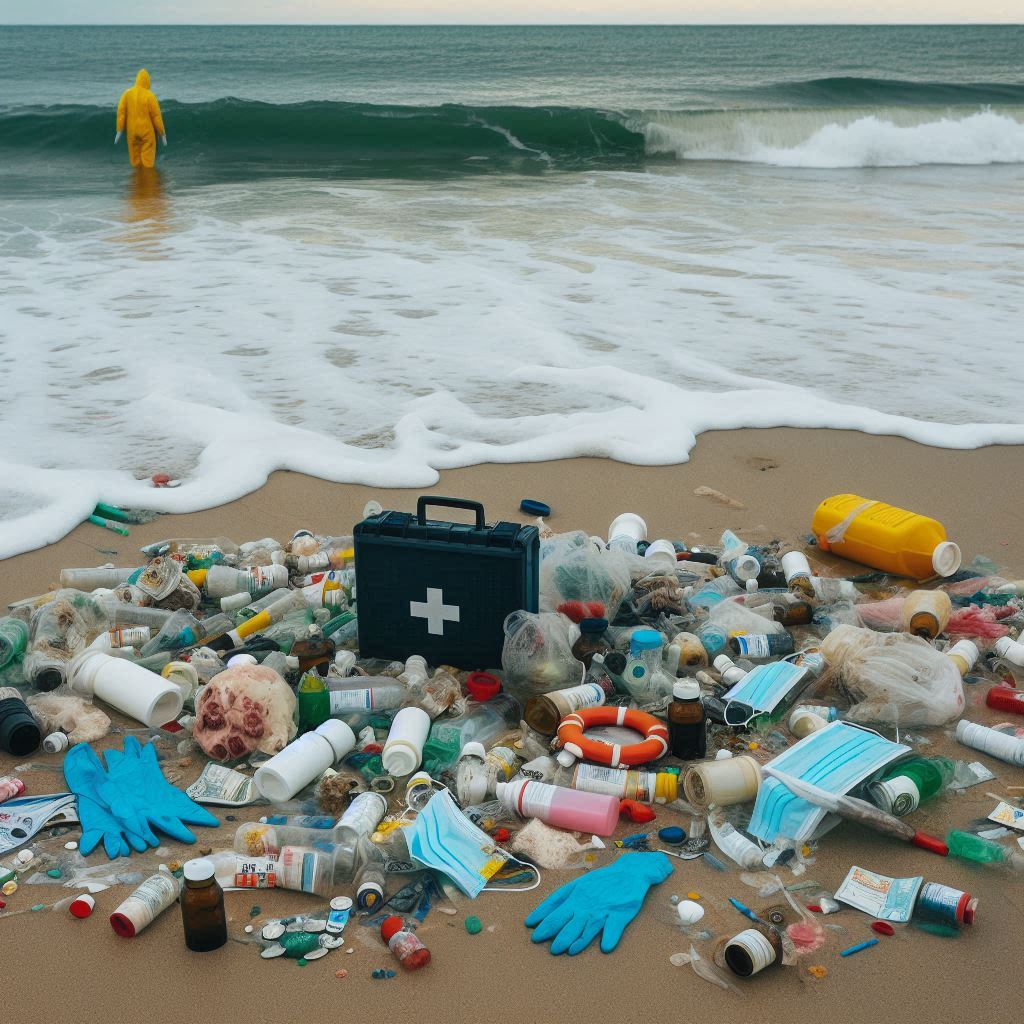Dar es Salaam. Dar es Salaam’s beaches, once bustling with visitors, are now tainted by a troubling tide – hazardous medical waste washed ashore from rivers crisscrossing Kinondoni Municipality.
Investigation has revealed the illegal dumping of syringes, IV bags, expired drug bottles, and other biomedical waste into rivers that ultimately flow into the Indian Ocean.
This environmental and public health crisis violates the Environmental Management Act of 2004, which mandates safe handling, storage, and disposal of hazardous waste. Yet, poor enforcement has allowed dangerous practices to persist, putting beachgoers and residents at risk of contracting diseases such as tetanus, HIV, and even cancer.
Legal Loopholes
Dar es Salaam generates 4,600 tonnes of solid waste daily, according to a 2019 city council report. Yet only 6.5% is recycled. The remainder, including medical waste, is discarded indiscriminately – often into waterways.
A 2013 study by Samwel Manyele and colleagues found that 83% of health facilities in Kinondoni bury medical waste in unsecured pits near homes, while 71% handle such waste manually – both in violation of environmental laws.
Despite these warnings, a recent visit to Rainbow Beach revealed the extent of the problem. Medical waste, visibly scattered along the shoreline, includes syringes, IV lines, and expired medication packaging – clear signs of ongoing pollution.
Beachside Businesses and Communities Affected
Sarah Pima, Director of the Human Dignity and Environmental Care Foundation (HUDEFO), said her team collects four to 13 tonnes of waste during biweekly beach cleanups, with 8% being hazardous medical waste.
“Each time we return, it’s like no cleanup happened at all,” she lamented.
Local residents and vendors confirm the beach has deteriorated significantly over the past five years. Once a vibrant hangout, Rainbow Beach now draws fewer than 20 visitors a day.
“People are scared to come here,” said Ramadhani Juma, a long-time resident. “Stepping on a used syringe could mean contracting HIV.”
Business has plummeted for food and beverage vendors. “I used to make up to TZS 300,000 a day,” said Ramadhani Ally, a beverage seller. “Now I barely reach TZS 50,000. The beach stinks, and customers are gone.”

Public Health at Risk
Dr. Maxigama Ndosi, a neurologist at Muhimbili National Hospital, warns of serious health threats posed by improperly discarded medical waste.
“If someone is pricked by a rusty syringe, the risk of tetanus is high. Six out of ten patients with tetanus from such wounds die,” he said. He urged stricter regulations on syringe sales and better disposal practices by health facilities.
Hazardous waste must be stored in clearly marked, color-coded containers, he emphasized – not thrown out with household trash.
Professor Philip Bwathondi, a marine expert from the University of Dar es Salaam, warned that medical waste in oceans endangers aquatic life.
Infected fish and infected organisms eventually find their way back to humans through the food chain, he said, increasing cancer and infection risks.
Rivers as Vectors of Pollution
Kinondoni rivers such as Mbezi, Mpiji, Feza, and Mlalakua have become conduits for medical waste from upstream healthcare facilities.
During rains, the flow intensifies, flushing waste into the ocean and back onto beaches.
Local residents allege that some clinics pay informal waste collectors as little as TZS 5,000 to illegally dump medical waste, instead of paying TZS 45,000 per week for proper incineration.
“During rains, waste flows straight into the ocean,” said one anonymous waste collector. “Some clinics wait for rain to get rid of it.”
Another waste handler admitted he is paid between TZS 5,000 and 10,000 per trip to dump waste into rivers under cover of darkness.
Not all waste comes from clinics – home care for chronically ill patients contributes to the problem as well, especially where used medical supplies are discarded improperly.
Enforcement Challenges
Kinondoni’s Chief Medical Officer, Dr. Peter Nsanya, insists that the municipality follows Ministry of Health guidelines, requiring facilities without incinerators to contract those with proper disposal services.
“We inspect clinics every three months. First-time offenders are educated, but repeated violations lead to legal action, including closure,” he said.
Environmental Inspector, Alban Mugyabuso, added that waste traps have been installed on rivers like Feza to intercept waste before it reaches the ocean.
Public education and community cleanups are also ongoing, he noted.
However, these efforts fall short. Residents like Mohamed Mzee, chairman of Mbezi Beach A, say local authorities are only now beginning to trace illegal dumpers.
“We need the Ministry of Health to inspect all clinics and ensure they are compliant,” Mzee urged.
Private Sector Efforts and Missed Opportunities
Gideon Chilamba, CEO of Chilambo General Trade Company in Kisarawe, operates an incinerator licensed to handle medical waste from any health facility in Tanzania. But few facilities use the service, he said.
“We have capacity, but awareness is low. Even landfills have medical waste mixed in. It’s a dangerous situation,” Chilamba warned.
Looking Ahead
Despite laws like the 2004 Environmental Management Act and 2009 Solid Waste Regulations, enforcement remains patchy.
The National Environment Management Council (NEMC), responsible for oversight, has launched programs like the Tanzania Coastal Management Partnership (TCMP) to protect marine areas – but challenges persist.
Experts say a combination of government regulation, public education, and private sector engagement is essential. Healthcare providers must be held accountable for their waste, and informal dumping networks must be dismantled.
“This is not just an environmental issue,” said Prof. Bwathondi. “It’s a public health crisis. And unless all stakeholders act now, the consequences will continue to wash up on our shores.”




1o3wql